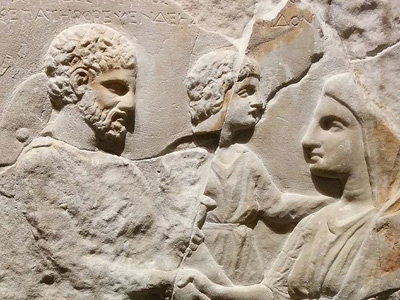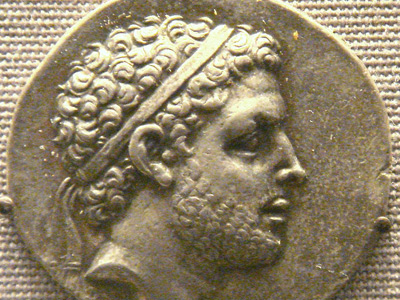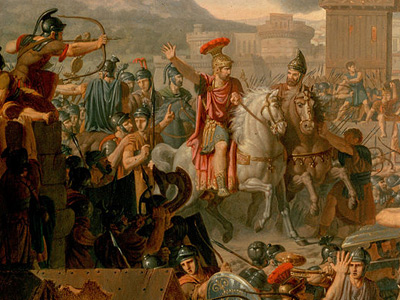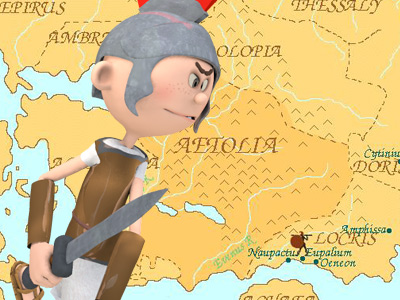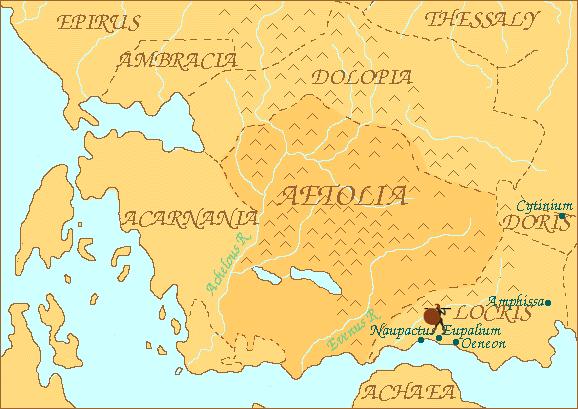First Macedonian War (214–205 BC)
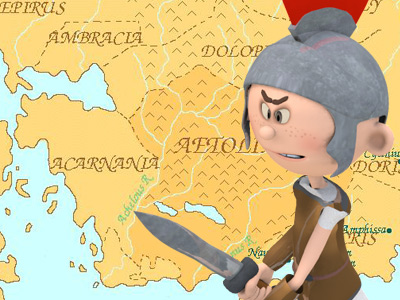
War breaks out in Illyria
In the late summer of 214 BC, Philip again attempted an Illyrian invasion by sea, with a fleet of 120 lembi. He captured Oricum which was lightly defended, and sailing up the Aous (modern Vjosë) river he besieged Apollonia.
Meanwhile, the Romans The Roman Republic was a form of government of Rome and the era of the classical Roman civilization when it was run through public representation of the Roman people. Beginning with the overthrow of the Roman Kingdom (traditionally dated to 509 BC) and ending in 27 BC with the establishment of the Roman Empire, Rome's control rapidly expanded during this period - from the city's immediate surroundings to hegemony over the entire Mediterranean world. had moved the fleet from Tarentum to Brundisium to continue the watch on the movements of Philip and a legion had been sent in support, all under the command of the Roman propraetor Marcus Valerius Laevinus. Upon receiving word from Oricum of events in Illyria, Laevinus crossed over with his fleet and army. Landing at Oricum, Laevinus was able to retake the town with little fighting.
The Roman Republic was a form of government of Rome and the era of the classical Roman civilization when it was run through public representation of the Roman people. Beginning with the overthrow of the Roman Kingdom (traditionally dated to 509 BC) and ending in 27 BC with the establishment of the Roman Empire, Rome's control rapidly expanded during this period - from the city's immediate surroundings to hegemony over the entire Mediterranean world. had moved the fleet from Tarentum to Brundisium to continue the watch on the movements of Philip and a legion had been sent in support, all under the command of the Roman propraetor Marcus Valerius Laevinus. Upon receiving word from Oricum of events in Illyria, Laevinus crossed over with his fleet and army. Landing at Oricum, Laevinus was able to retake the town with little fighting.
In the account given by Livy, Laevinus, hearing that Apollonia was under siege, sent 2000 men under the command of Quintus Naevius Crista, to the mouth of the river. Avoiding Philip's army, Crista was able to enter the city by night unobserved. The following night, catching Philip's forces by surprise, he attacked and routed their camp. Philip, escaping to his ships in the river, made his way over the mountains and back to Macedonia, having burned his fleet and left many thousands of his men that had died or been taken prisoner, along with all of his armies' possessions, behind. Laevinus and his fleet wintered at Oricum.
Twice thwarted in attempts at invasion of Illyria by sea, and now constrained by Laevinus' fleet in the Adriatic, Philip spent the next two years 213–212 BC making advances in Illyria by land. Keeping clear of the coast, he took the inland towns of Atintania, and Dimale, and subdued the Greek tribe of the Dassaretae and the Illyrian Parthini and at least the southern Ardiaei.
He was finally able to gain access to the Adriatic by capturing Lissus and its seemingly impregnable citadel, after which the surrounding territories surrendered. Perhaps the capture of Lissus rekindled in Philip hopes of an Italian invasion. However the loss of his fleet meant that Philip would be dependent on Carthage for passage to and from Italy, making the prospect of invasion considerably less appealing.
HISTORY
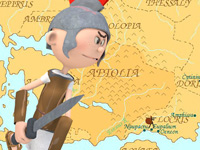
RESOURCES
This article uses material from the Wikipedia article "First Macedonian War (214–205 BC)", which is released under the Creative Commons Attribution-Share-Alike License 3.0.
© Stories Preschool. All Rights Reserved.
